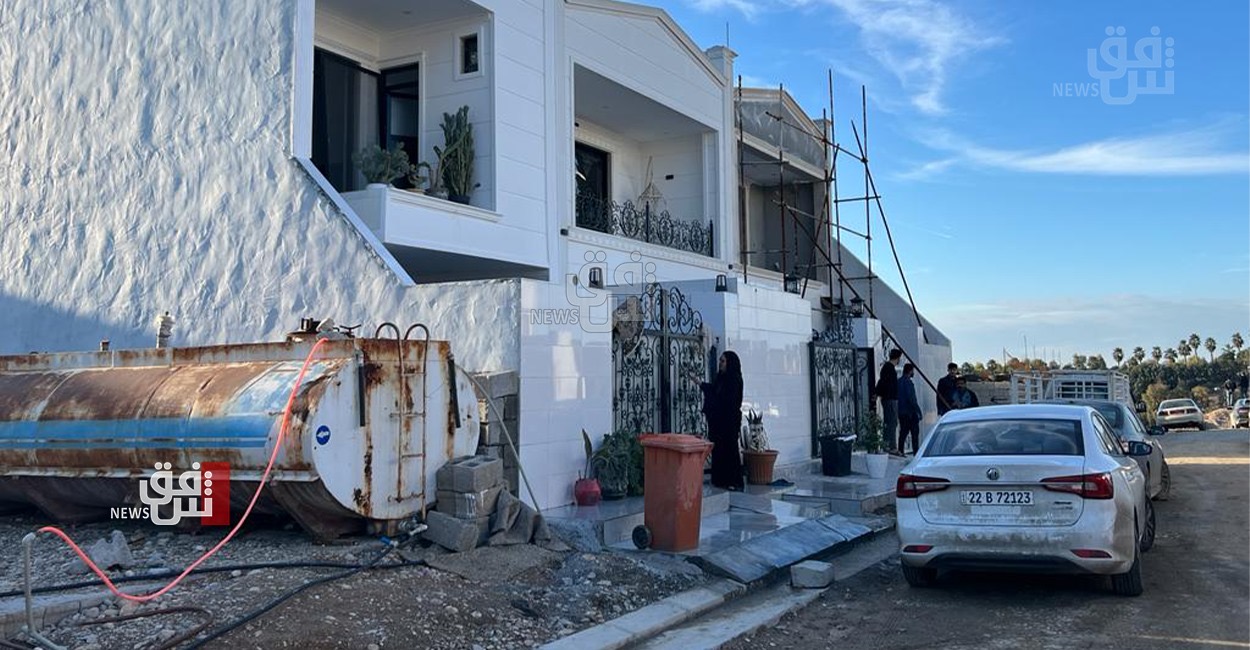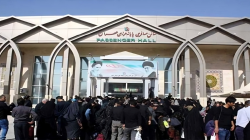Iranian assault escalates diplomatic tensions, undermines "sturdy relations" with Iraq

Shafaq News /The Iranian missile attacks last Monday night on Iraqi territory in Erbil, Kurdistan Region (KRI), were deemed by the Iraqi government as "an act of aggression" and a dangerous development undermining the strong relation between Iraq and its eastern neighbor. The Iraqi government affirmed its right to respond at an appropriate time. Political analysts see the Iraqi response as unusual, entering a diplomatic crisis with Iran for the first time since 2003.
During Monday night to Tuesday, Iran's Revolutionary Guard (IRGC) conducted a fierce missile strike targeting civilian areas in Erbil, resulting in several civilian casualties. IRGC claimed responsibility for the strikes on Erbil, stating that they were "in response to the crimes of the Zionist regime against the Islamic Republic," citing the recent killing of IRGC leaders by Israeli forces. The missile attack targeted a Mossad spy chief's headquarters in KRI, which was subsequently destroyed.
KRI’s Security Council condemned IRGC's missile strike, which targeted civilian areas in Erbil, as a "flagrant violation of the sovereignty of the region and Iraq."
Unlawful justifications for targeting
Ali Al-Sahib, the head of the Regional Center for Studies, asserted, "Regardless of Iran's justifications for the bombing, they are entirely illegal and unacceptable. Iraq is a sovereign nation with its own flag, constitution, and an internationally recognized elected government. Iraq is a founding member of the United Nations and even the Arab League. Therefore, violating the sanctity of its airspace, territories, and citizens is, in itself, a crime, whether the violation occurs in the north, south, west, or east."
Al-Sahib further told Shafaq News Agency that "Iraq today pursues a policy of balance and non-interference in the affairs of others. Iraq will not be a battleground for settling scores or a corridor for attacks against any party. The recent bombing in KRI is a major assault and a serious error. The authorities in Iraq cannot remain silent about it. Otherwise, we risk becoming an arena of conflict for all parties, especially amid the longstanding conflict between the United States and Israel."
Al-Sahib emphasized that "citizens are fundamentally against foreign presence on their land, but they also do not want that to be a reason for violating the sovereignty of their country at any time and under any circumstances."
Peculiar esponse
Political analyst Salah Al-Mousawi noted that "the Iraqi government's response to the Iranian bombing was peculiar. We have not seen before that the Iraqi government explicitly names Iran." He pointed out that "Iranians' actions are also peculiar, as the Resistance Axis is currently fighting Israel directly, while Iranians are fighting Iraqis."
He continued, "A few days ago, Iranians trespassed into Iraqi territorial waters and seized a Greek oil tanker carrying 130,000 barrels of oil, claiming that the Greek ship had an oil dispute with Iran a year ago due to America. This is a serious violation of Iraq's sovereignty."
Al-Mousawi added, "Today, Iranians are attacking Erbil, claiming Israel's presence on its land and justifying it by linking it to the recent attacks in Kerman, Iran."
Explaining to Shafaq News Agency, he stated that "all these matters represent mystery and peculiarity in Iranian politics," noting that "Iraq's stance against the recent Iranian attacks is superficial and aims to send a message to everyone that it will not allow trespassing its borders and territories. Consequently, it is also a message to the Americans at the same time."
Foreign policy must uphold national dignity
Najim Abd Tarish, a professor of political science at Thi Qar University, asserted that foreign policy is obliged to preserve the dignity of the state. Following the recent attacks, Iraq is now vulnerable to various forms of aggression on its territories.
Tarish, speaking to Shafaq News Agency, emphasized that "the Iraqi government's silence on this bombing will, in reality, embolden other countries to act in the same way. Therefore, the Iraqi government must address this action rationally, balancing with all those who attack Iraqi territory." He noted that "foreign policy is required to uphold the dignity of the state, as Iraq's future is exposed to various threats. Iraqi security must be a priority in Iraq's independent foreign policy, and it should be defended."
He added, "Relations with the Iranian side involve some interference, and the boundaries of this interference cannot be clearly defined. Qasem Al-Araji's statement about the absence of any Israeli Mossad presence in Kurdistan's territories is concerning if not supported by the necessary backing. Without the support of the Iraqi political decision-maker, his statement will be isolated."
Tarish continued, "Unfortunately, the more internal politics are fragmented, the more foreign policy is also dismantled. We believe this issue will pass like other previous ones," expecting "future crises with neighboring countries due to recent Iranian actions against Iraq."
Entering a diplomatic crisis
Imad Allo, a security expert, stated that "Iraq has entered into a major diplomatic crisis with Iran after announcing the filing of a complaint against its eastern neighbor at the United Nations Security Council."
Allo, speaking to Shafaq News Agency, noted that "several indicators suggest that Iraq has entered a significant diplomatic crisis with Iran. The most prominent of these indicators is Iraq filing a complaint against its eastern neighbor at the United Nations Security Council. Additionally, Iraq withdrew its ambassador to Tehran for consultations on this matter, summoned the Iranian ambassador in Baghdad, and handed him a strongly-worded protest memorandum in response to the bombing in Erbil. Furthermore, the statements made by the Prime Minister regarding Iran striking a house in Erbil with 12 missiles are seen as a serious development in the Iranian-Iraqi relations." He emphasized that "these indicators reflect the tense situation between Iraq and Iran, which may manifest significantly in the coming period."
Allo asserted that "the Iraqi position was very strong, marking the first significant incident in Iranian-Iraqi relations since 2003." He clarified that "the recent bombing in Erbil will increase Iran's international isolation, evident in the widespread condemnations from the United States, Europe, and Arab countries, calling for an urgent meeting through the Arab League within the last 24 hours."
He further explained that "Iran's response to these condemnations, stating that it will continue defending its national security, is reminiscent of similar statements from Zionist entity leaders claiming to defend their national security in the brutal war they lead in Gaza."





